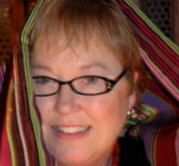International credit union development: Working with credit unions in Liberia changed me forever
 Congo Town, Monrovia, Liberia
Congo Town, Monrovia, Liberia
I had the opportunity to serve the struggling credit union movement in Liberia, Africa, as part of the USAID/ACDI/VOCA Farmer to Farmer program. The U.S. government-funded Liberian Agricultural Upgrading, Nutrition and Child Health (LAUNCH) and The Ebola Response Resilience Programmes (ERRP) ran from 2010-2016.
In 2015, I partnered with LAUNCH trainer, Henson Kollie, who was charged with program implementation in five rural Liberian counties. Our mandate was to develop credit union curriculum to address funding food stabilization initiatives in starving communities of post-war Liberia. My role was to train Henson in culturally appropriate, non-alphabetized train-the-trainer methodologies. Henson’s role would be to institutionalize the LAUNCH program curriculum into their agriculture and micro credit systems.
During my 6-week volunteer assignment, Henson and I travelled by truck to five rural communities. Due to extreme travel conditions in post-war Liberia, we often inched our way across rivers and water damaged roads to reach the villages. Sometimes we were rescued by UN peace-keeping tanks that pulled us out of mud swollen sink holes.
Because of the long distances between communities, we had many hours to share stories and life experiences. Henson’s resilience in the face of life-threatening circumstances was inspirational and a testament to his courage. He taught me the meaning of compassion above self. Here is Henson’s story:
In 1989 when the civil war in Liberia began, Henson was 18. Liberia’s 14-year war continues to impact the quality of life with over 55% living well below the poverty line. The average annual income is less than $450.
Henson’s father worked at Firestone in the rubber industry. During Liberia’s civil war, when his father was let go, he returned to the village to protect his family.
Despite the war, the family insisted Henson stay in the capital city, Monrovia, where it was safe and where Henson could continue his university studies. Imagine the strain under which this young man earned his Bachelor of Science in Agriculture in 2010. No family income. A country suffering from internal strife. No jobs. Government corruption. Civil and societal breakdown.
Near the end of the war, most villagers were starving. Despite the war, Henson would travel hours, hitchhiking from his university in Monrovia, to bring food and support to his struggling village and family.
Following traditional African values, it is common practice for everyone in a community to share what little they have – especially during crises like civil war. Cooperation is an inherent cultural value in African villages. Scarce supplies were shared with everyone.
“Our villagers assumed because my father had worked at Firestone that we had extra resources,” Henson shared. “They were convinced we had buried money somewhere. My father offered anyone to search our family grounds if they didn’t believe him.”
As Henson continued his story, his voice became more and more quiet. “The villagers ransacked our family compound even digging up our meager vegetable beds. They found nothing and became enraged.”
“Starvation drives people to extreme measures,” Henson revealed softly. “In ultimate desperation, the villagers marched my family from our compound into the village courtyard. Even as my father desperately pleaded that we could not share what we didn’t have, it fell on deaf ears. We looked on in horror as my father was murdered by my best friend”.
I could hardly breathe. I was too stunned to speak.
Throughout our trip, before sharing this story, Henson had spoken fondly of post war village life. He had often mentioned his childhood friend who lived in the compound next to Henson’s family. There was poignant sadness as he shared painful memories but I never heard Henson utter one word of anger or disparagement against his best friend. Henson explained that to this day, his friend runs to hide in shame when he knows Henson is visiting the village. Yet Henson has only forgiveness in his heart.
When I was finally able to trust my voice, I asked, “How is it you can speak so lovingly of this friend after what happened?”
Henson’s humbling response?
“That was war. This is now. If I didn’t forgive him, we would still be at war.”
The USAID 5-year project was not renewed after my assignment in 2016. Along with the LAUNCH program, WOCCU’s CU strengthening program also came to an end with no further funding.
During the 2014-2015 Ebola crisis, the Liberian economy declined and many foreign-owned businesses departed with their capital and expertise, as well as many NGOs. The Ebola epidemic forced the government to divert scarce resources to combat the spread of the virus.
The cost of addressing the Ebola epidemic coincided with decreased economic activity which reduced government revenue. A full 54% of rural populations live below the poverty line. Couple that with the reconciliation of a nation still recovering from 14 years of fighting and you see clearly the ingredients for ongoing poverty.
Because so many NGOs ended development programs, Henson has not been able to find meaningful work since that time. Liberia continues to be economically and developmentally challenged.
FAST FORWARD to 2022:
The rest of the story
Henson contacted me this month to proudly share that despite the odds, his son graduated from high school. There is also a strong possibility his son will be able to study in the United States under a special diversity immigration program.
The Diversity Visa Program (DV Lottery) is congressionally-mandated and allows up to 55,000 persons from nations historically underrepresented in terms of migrations to the US to qualify each year for Green Card immigrant visas.
Henson’s son applied for the DV lottery and has won for an initial interview. Their fingers are crossed. And they’re praying for resources so the next generation may have a better life opportunity.
I am personally working to ensure this interview happens. If you feel compelled to participate in this young man’s future, please email me at carol@fabricoflife.org

